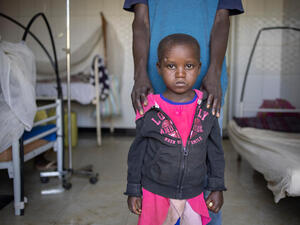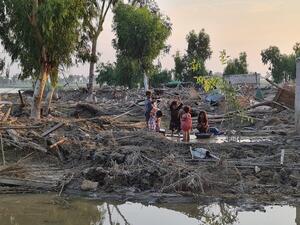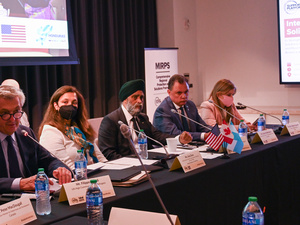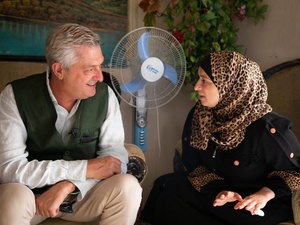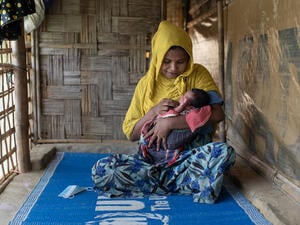UNHCR asks for $10.8 million for Mali and Niger reintegration programmes
UNHCR asks for $10.8 million for Mali and Niger reintegration programmes
The United Nations High Commissioner for Refugees on Wednesday appealed for US$10.8 million for the repatriation and reintegration of refugees from Mali and the Niger. The sum is to cover activities during 1998 and will be divided between Mali ($8.7 million), Niger ($1.6 m.) and Algeria ($500,000).
Over 120,000 refugees have returned to Mali since 1995, more than 90,000 of them receiving assistance from UNHCR to repatriate. Most Malians returned from Mauritania and Burkina Faso, the principal countries of asylum for the estimated 150,000 who fled armed conflict in their country in the early 1990s.
Final convoys rolled home from Mauritania in June of last year and from Burkina Faso last December, marking the successful completion of UNHCR's Mali refugee programmes in those countries. Still, some 3,000 Malian refugees remain in Algeria and 14,000 in the Niger.
The repatriation operation spread across the vast region has at times required several-day journeys of up to 1,000 kms and travel at night to avoid daytime temperatures of more than 50ºC.
At least 11,000 of the remaining refugees are expected to repatriate in the coming weeks. UNHCR is supporting reconciliation meetings between returnees and other communities in Mali, as well as encouraging Malian officials to visit camps, encounters which were key to former exiles' confidence in the possibility of going home.
The reintegration process in Mali is fragile and depends heavily on the development of the arid north of the country, where UNHCR is digging and remaking 135 water outlets of all types. Funding of programmes ranging from income generation, education, and agriculture to village shops selling basic supplies at reasonable prices, is critical to reconciliation between inhabitants and the mainly Tuareg returning population.
In the Niger, UNHCR also plans to complete its repatriation operation during 1998, a hope which will become reality if security concerns, particularly criminality, do not multiply. Around 4,000 refugees who fled political turmoil and armed rebellion in the late 1980s, and renewed insurgency in the early 1990s, are finally set to return from Algeria.
To ensure that the refugees can settle successfully once they reach home, UNHCR will begin moving people back only after designated sites in Niger are completely rehabilitated over the coming weeks.
UNHCR's projects include transit centres and equipping reintegration sites with water, health and educational facilities. Beyond the obvious need for water in the desert climate, new priorities for families returning from refugees camps include access to good health care and the opportunity to send children to school.


